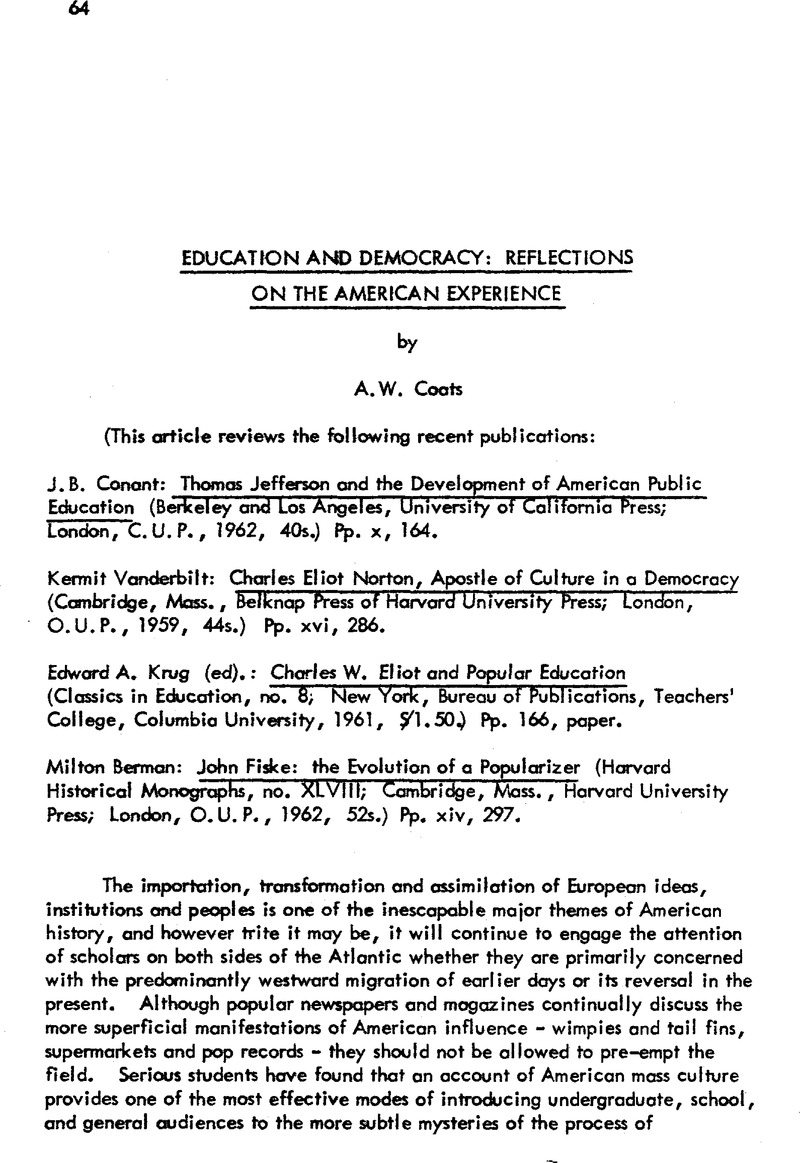8. According to Eliot, the scholar's “motives, hopes and aims … are different from those of ordinary humanity … he is almost completely indifferent to money, except as it secures a simple livelihood and opportunity for his work. He is wholly indifferent to notoriety; he even shrinks from and abhors it, and his idea of fame is different from that of other men. He would indeed like to have his name favourably known, not to millions of people, but to five or six students of the Latin dative case. He much dislikes to see his name in the newspaper; but he hopes that a hundred years hence some student of his speciality may read his name with gratitude in an ancient volume of the proceedings of some learned academy … He eagerly desires what he calls the results of investigation; but these results would seem to the populace to have no possible interest..…. The market-place and the forum are to him deserts, and for the common pursuits of men he would say impatiently that he had no time.” Nielson,
op.cit., Vol. 1, pp. 80–1. This was written in 1898, by which time Eliot's appreciation of scholarship had grown significantly.
Google Scholar 